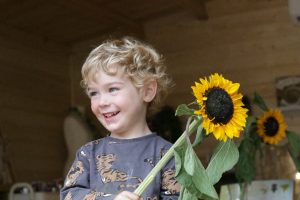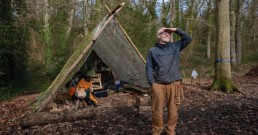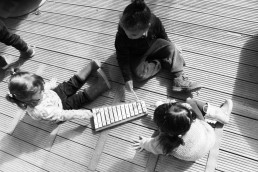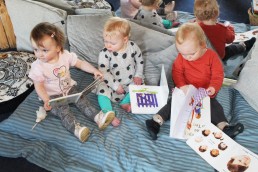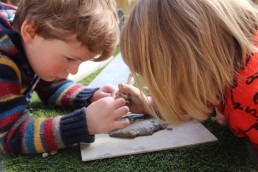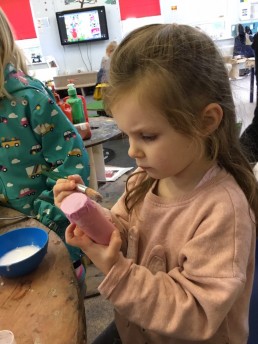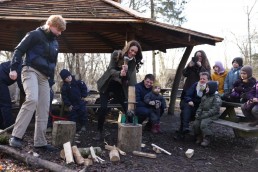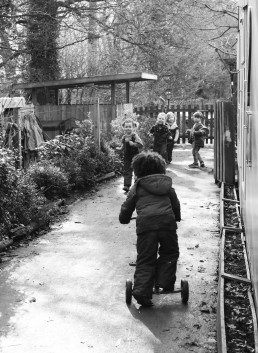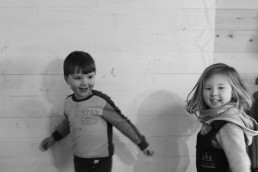In the News
https://www.newstatesman.com/encounter/2022/04/twenty-minutes-with-trees-restores-your-focus-the-father-of-the-uks-forest-schools-on-the-outdoor-learning-boom
Music Is Inside Us
The importance of Music in Early Years
Albert Einstein once said-
‘If I were not a physicist, I would probably be a musician. I often think in music. I live my day dreams in music. I see my life in terms of music.'
The beauty of music is it doesn’t speak in words, it speaks in emotion. It is a joy shared equally by babies through to the elderly. At Inspirations, music and creativity is the language we learn through, and there isn’t an hour that goes by without the influence of music somewhere.
A study at the University of California Brain and Creativity Institute discovered that children and babies who are exposed to musical experiences have increased brain development and reading skills. They also found that learning to play an instrument can improve mathematical learning and numeracy. But of course the benefits of music covers far more than just academic achievements.
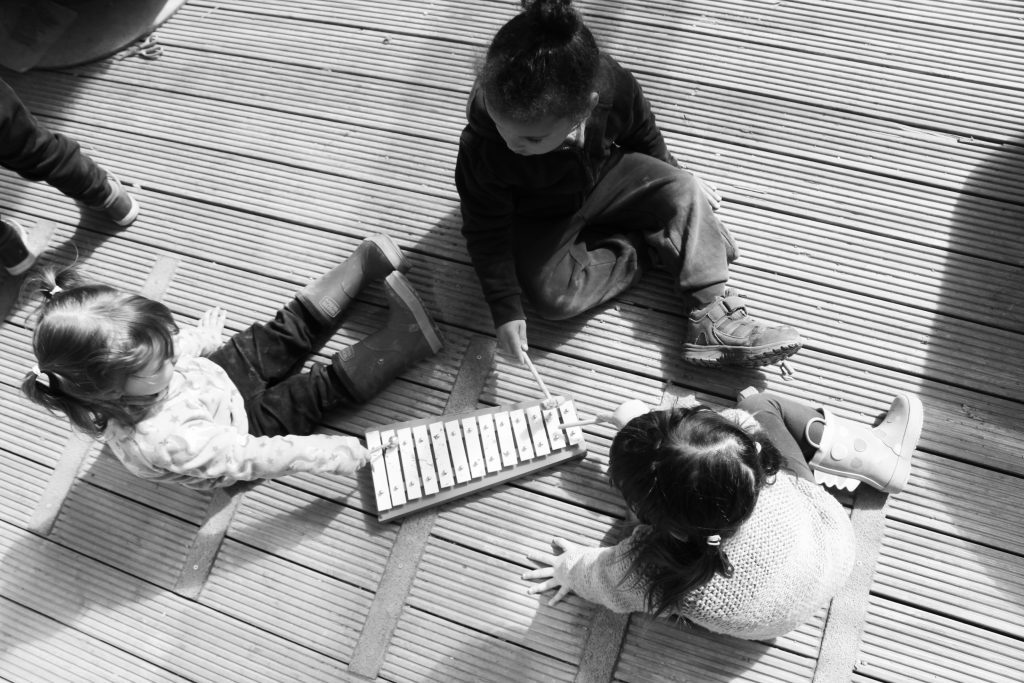
The many advantages of Music
Music brings joy. In our baby rooms the children learn their first sounds through song and rhyme. They build motor skills from movement and dance to music, as well as finding new ways to express themselves, and this only continues as they get older. As they move up from baby to toddler, and with the support from our Educators and Signing Sam they absorb new words and strengthen their memory skills. Through singing, dancing, music and instruments our little ones develop hand eye coordination, spatial awareness and balance.
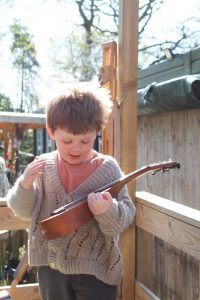
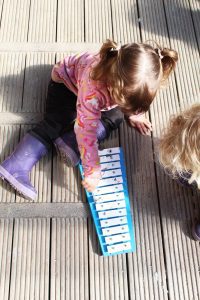
By the time our children reach pre-school they have had the chance to build up a repertoire or tunes and songs they’re now ready for some more advanced musical experiences. In the Art Studio we have daily ukulele sessions where the children learn to hold and strum, along with many other instruments. We make up and perform songs together or simply move to the sound of music and instruments. Naturally these experiences enhance our children's social skills and turn taking abilities but it also gives them a tool that is so important to take into their adult life- the ability better regulate emotions and control feelings.
Our carpet and choosing times are always accompanied by singing, one of our favourites in the Pre-school room is the Nigerian Greeting song 'Funga Alafia' with rhythmical clapping along side. Through song we can learn about diversity, cultures and widen our knowledge of language, the world, and our place within it. It also brings us all together in a shared moment of song.
https://www.youtube.com/watch?v=PDjgSoMTKpU
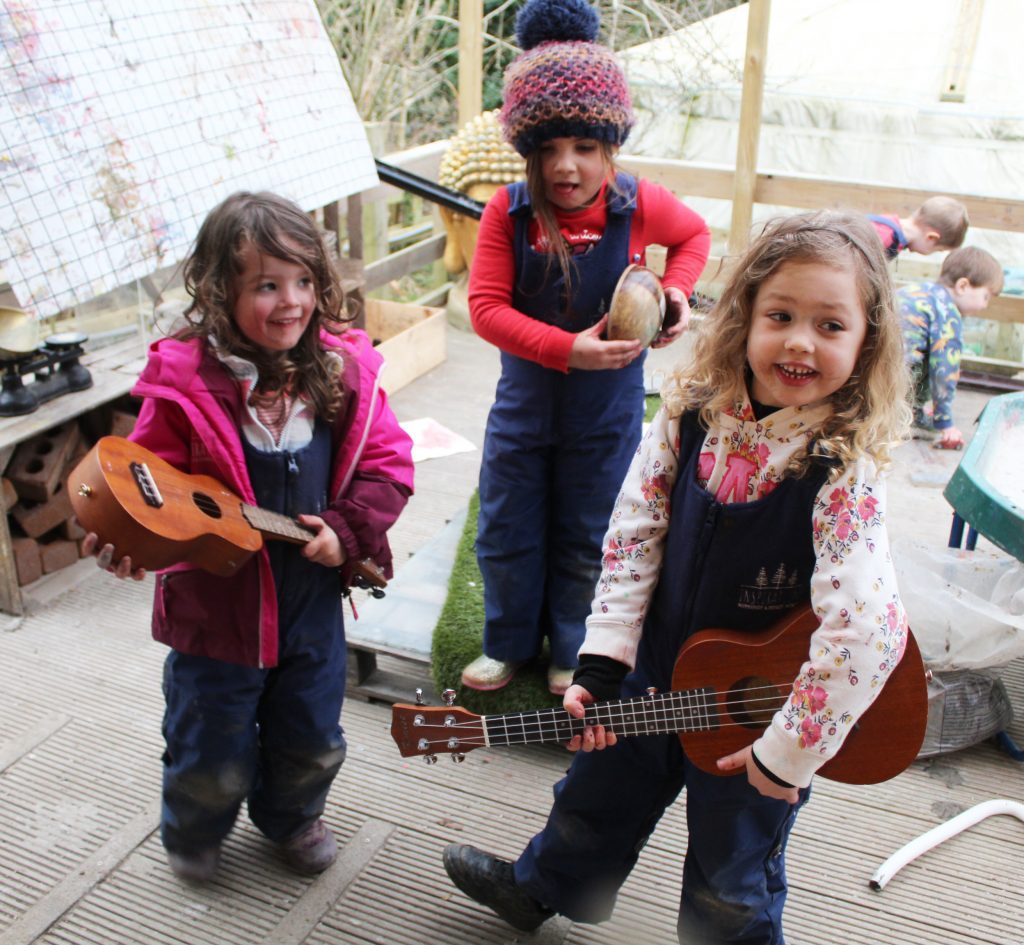
Music really is the key to bring us all together, but how can you bring more musical experiences into your daily home life?
- Take rhythmic instruments on outings to distract or focus them when needed
- Play orchestral music from YouTube
- Singing and dancing together- songs such as ‘Sleeping bunnies’
- Enrol onto a local music class
- Build your own shaker from yogurt pots and lentils
- Create drums from pots and pans
- Learn a dance routine
Gigs for our kids
Also keep an eye on Youth Anthems, who put on family friendly day time gigs and vegan food at Wharf Chambers, Leeds. Tickets to their next event 3rd July are on sale (free for under 18’s with a paying adult) and suitable for babies right up to adults. https://www.facebook.com/YouthAnthems/
Bring more music into your life, because after all, lifting our spirits is just one of the endless advantages it brings.
-Nathalie
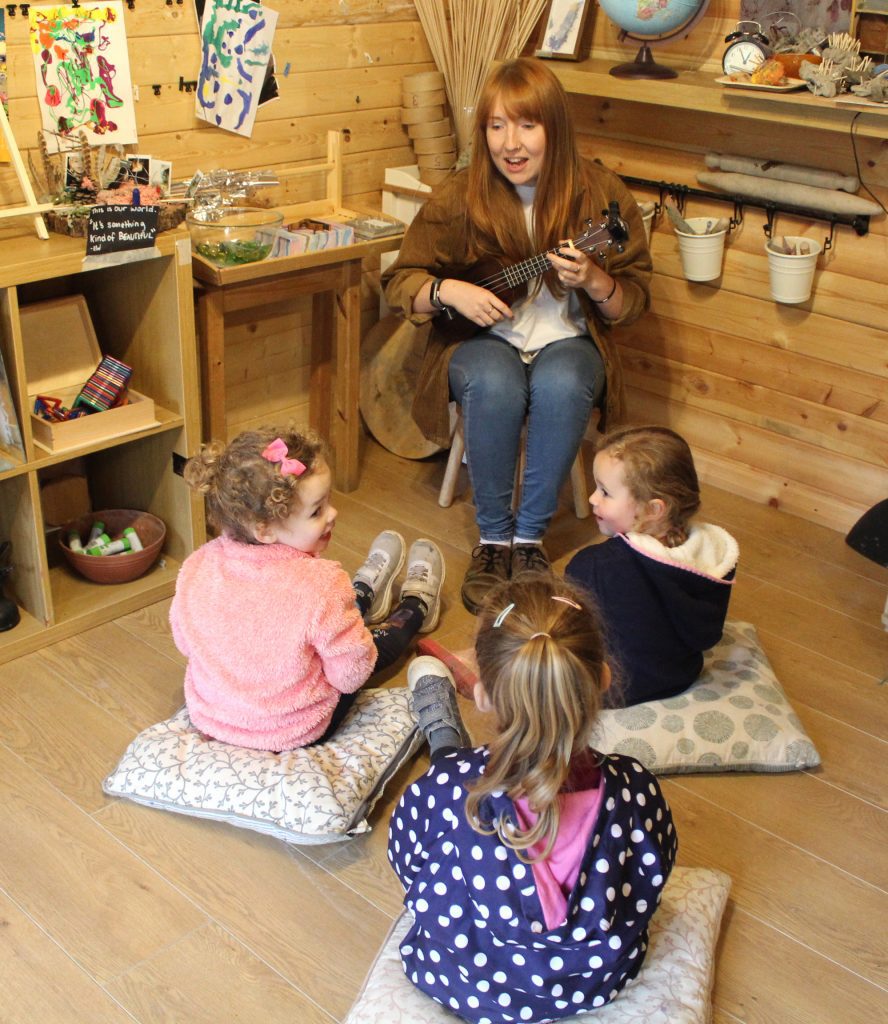
The Joy of Reading
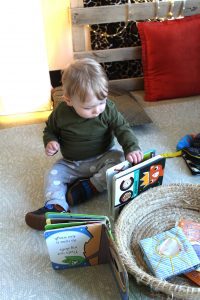 The term ‘Reading’ falls under the literacy aspect along with Writing, in the 'Birth to 5 Matters'- the guidance we follow to support the children in their development. As educators and parents we can spark that joy of reading from inside the womb. From noticing and engaging with sounds and images in the environment, handling books, re-telling favourite stories, songs and jingles, to enjoying an increasing range of print (fiction and nonfiction), and being able to recall and discuss stories or information that has been read to them or they have read themselves.
The term ‘Reading’ falls under the literacy aspect along with Writing, in the 'Birth to 5 Matters'- the guidance we follow to support the children in their development. As educators and parents we can spark that joy of reading from inside the womb. From noticing and engaging with sounds and images in the environment, handling books, re-telling favourite stories, songs and jingles, to enjoying an increasing range of print (fiction and nonfiction), and being able to recall and discuss stories or information that has been read to them or they have read themselves.
Literacy in the early years is very important as it is fundamental in early education and is a skill that is vital for everyone. It can include talking about books, print in the environment, early mark making, as well as sharing books and reading. The opportunity to read crops up multiple times a day, whether it be reading books, road signs, shop/supermarket signs/logos, or even familiar words such as name tags.
Why is it so Important for our little ones?
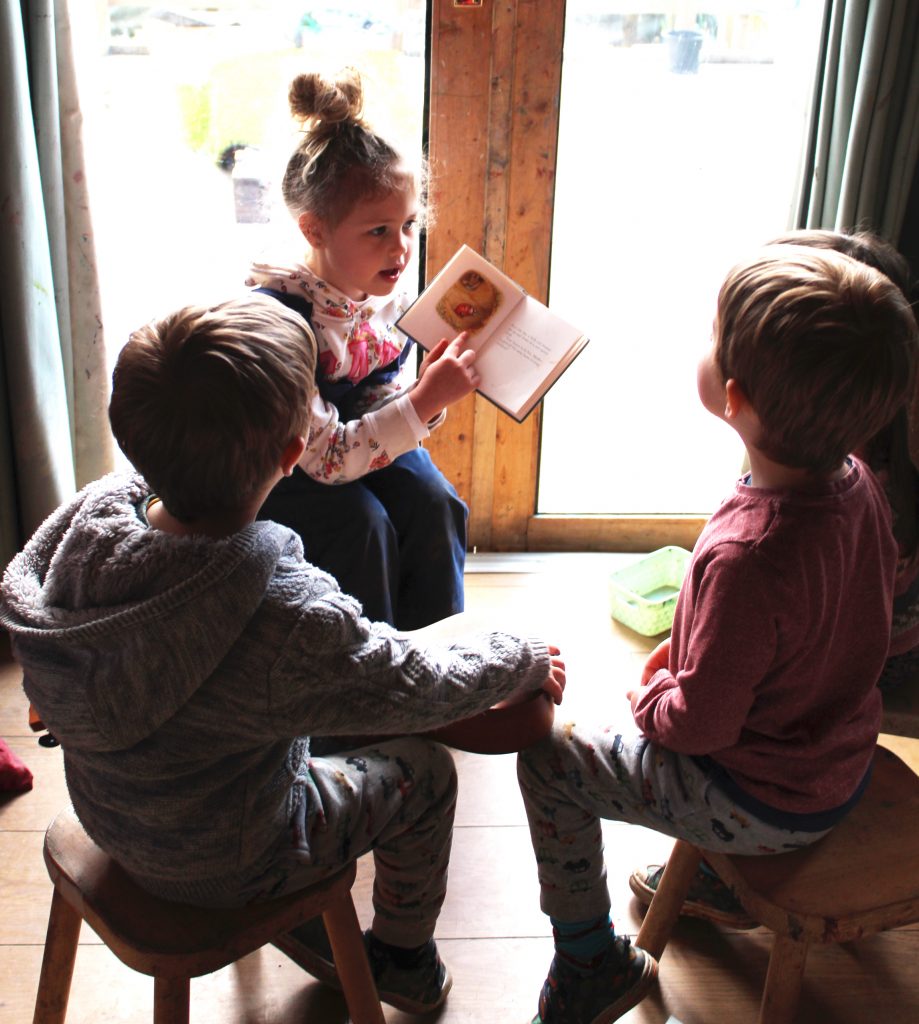
Vital connections in the brain are made very early in life and when stimulated this forms the basis of all future learning and intellectual ability. In simpler terms, reading to your child at a young age stimulates these brain cells and each time it strengthens them and they form connections with even more brain cells. Stimulating your young child’s brain cells through these early experiences will help them to become better listeners, readers, and communicators as well as instilling a lifelong love of learning.
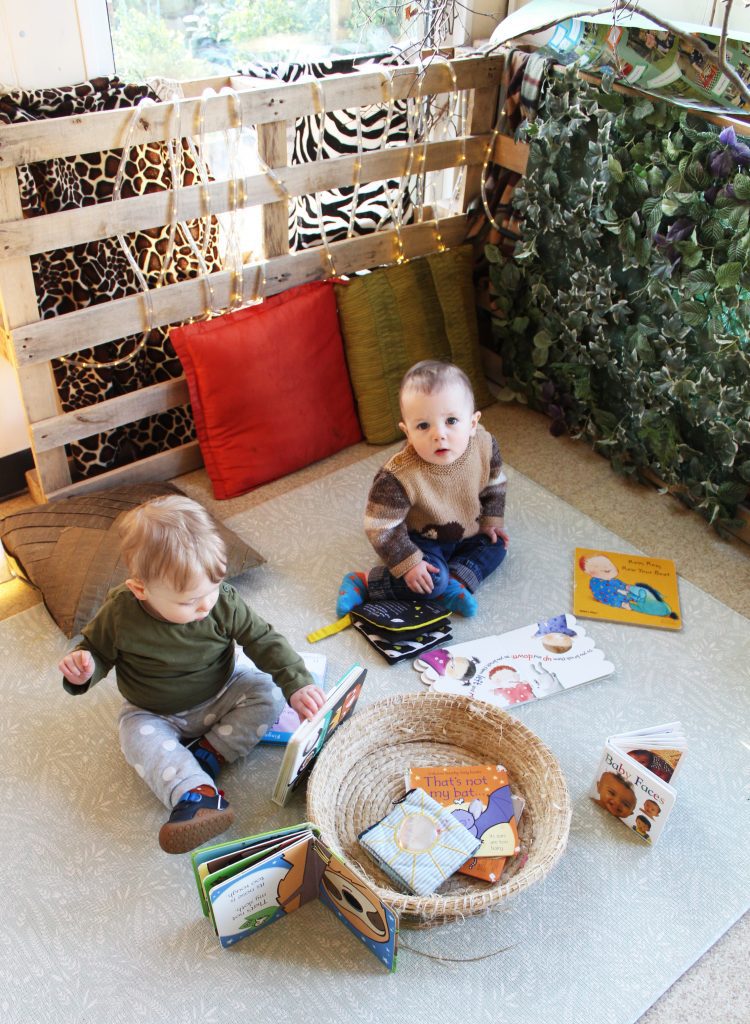
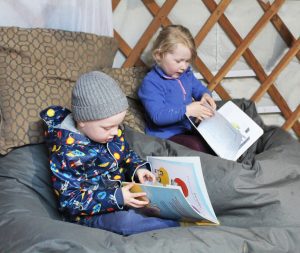
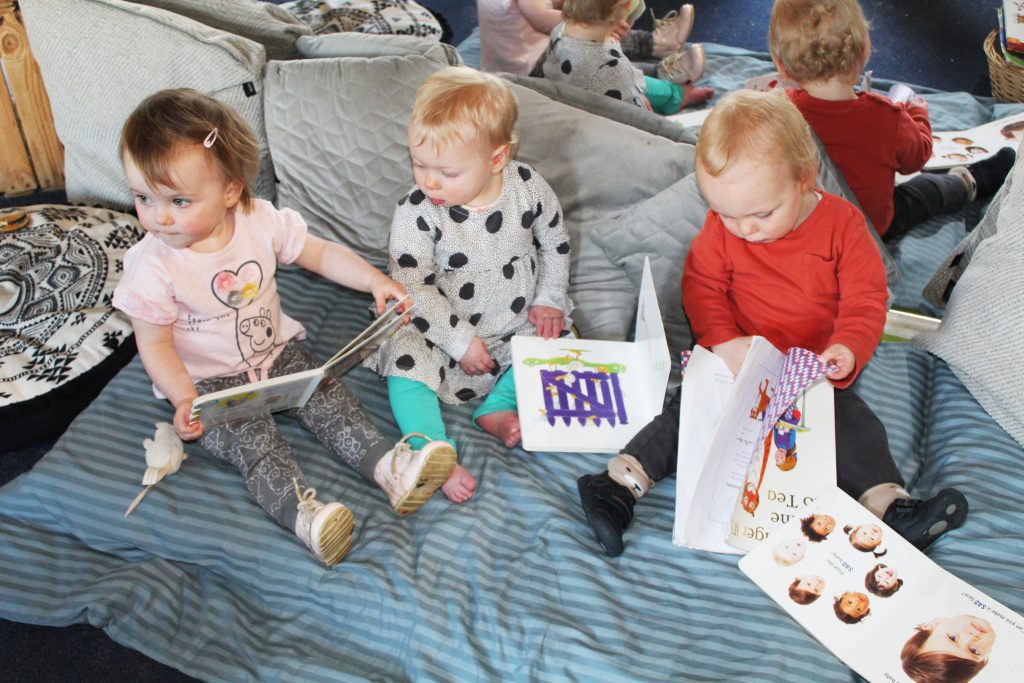
When you think about why reading is important, you may think of the obvious benefits such as expanding your vocabulary and knowledge but what many people don’t realise is that for young children, it develops so many other skills too. Early reading ignites creativity, sparks curiosity and stimulates the imagination in young children. Often this leads to role play as children grow which helps to develop other skills such as empathy and problem solving. While these are significant benefits to young children, the biggest psychological benefit is how reading helps to grow self-confidence and independence from such an early age. The simple act of taking time out of your day to read to your baby or sit down with your child helps to promote greater maturity and discipline, which are all essential attributes when it comes to your child learning to read in a school setting as sometimes the psychological pressure can be too much. If you read with your children early on and help them to learn at their own pace in a fun setting, you can foster a love of reading and help them to become competent and confident at it before having to do it in front of others
How do we support the joy of reading?
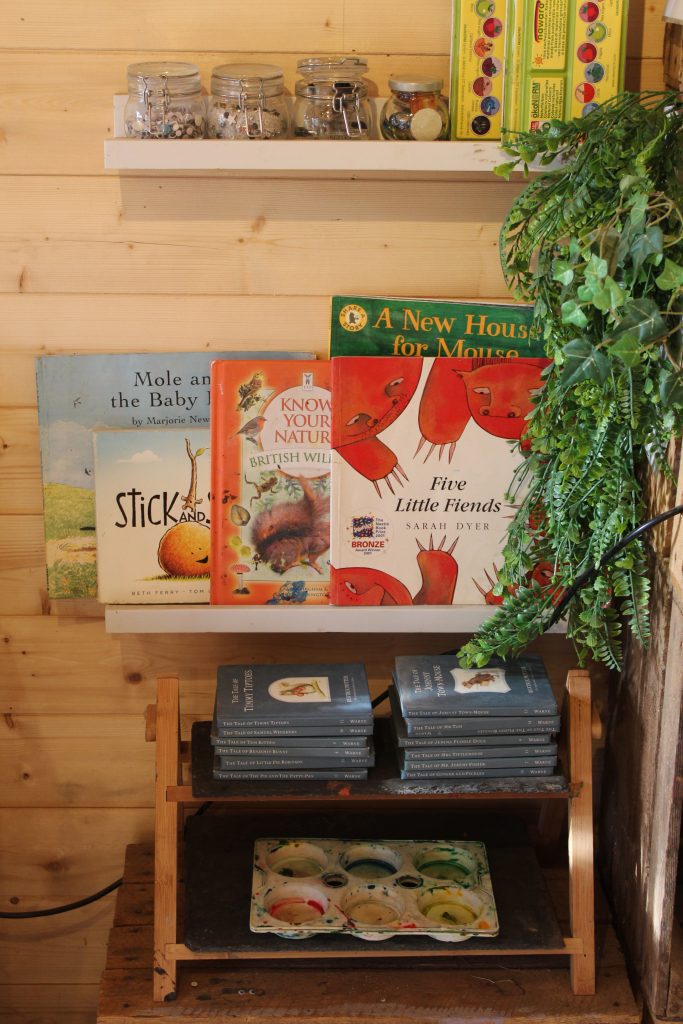 Here at Inspirations, we make available many challenges and resources to support the joy of reading. Whether it be the lending library we have made in our front entrance, easy to reach book display shelves for independent access at all times, changing the books depending on the children’s interests, projects, or diversity and providing information books on such things as animals/mini beasts, space, and school.
Here at Inspirations, we make available many challenges and resources to support the joy of reading. Whether it be the lending library we have made in our front entrance, easy to reach book display shelves for independent access at all times, changing the books depending on the children’s interests, projects, or diversity and providing information books on such things as animals/mini beasts, space, and school.
We support each activity area/area of provision with books as an extra provocation or to act as inspiration. We create cosy areas for the children to access freely when they wish to have some down time and look at books with their friends or independently as well as creating carpet time sessions for the children to have a controlled story time with an adult. We celebrate World book day and visit the local library, and have, on a couple of occasions invited the librarians in to do a session with the children. Creating a literacy area in our preschool provision for the children to freely access, as well as having names for the children’s pegs and self registration, helps the children with letter and name recognition, which then leads them on to phonetically sounding out the initial sounds/words. Sharing familiar stories or stories with Rhymes so that the children can join in with rhymes and repeated refrains is something the children love to do.
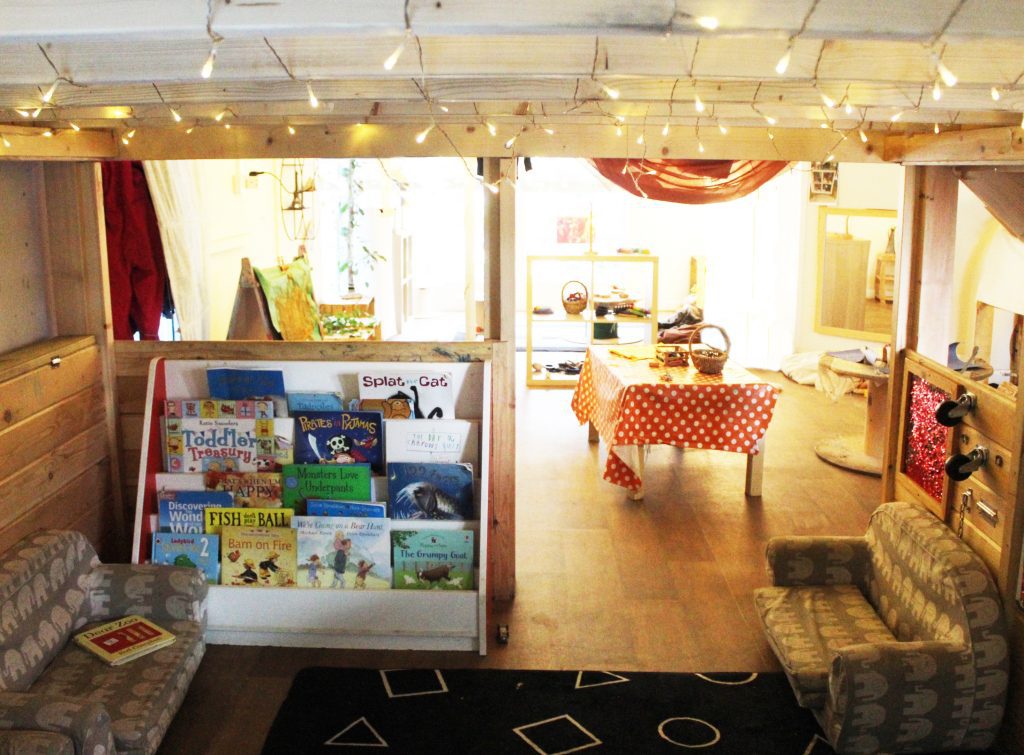
Now you know why reading is important and all the benefits that it offers, start to make the time to read a little with your children every day. Soon you’ll find that cuddling up in bed reading stories is your favourite part of the day and it’s doing your children a world of good too, because after all...
“There are perhaps no days of our childhood we lived so fully as those we believe we left without having lived them, those we spent with a favourite book.”
― Marcel Proust, Days of Reading
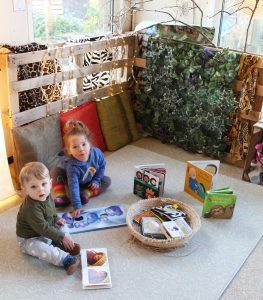
Let’s shake up Education
At Inspirations nurseries we go the extra mile to ensure we are providing the children in our care a ‘second to none’ learning environment. Our ethos and pedagogy speak of children learning trough their interests, through nature and art, both independently and with their peers. Our environment is set up to encourage thought processing skills, logical problem solving and collaborating ideas to solve problems within small groups of friends and/or the adults supporting them.
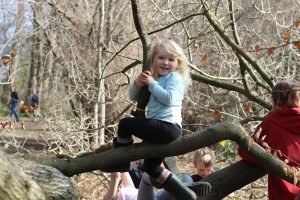
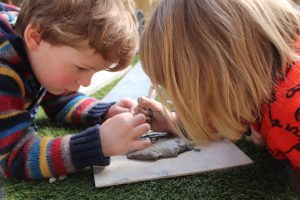
Our love of all thing’s nature encourages us to consider the planet and our impact on its future evolution. We recycle, upcycle and reuse and repurpose our waste as much as possible and discuss with the children our environmental impact wherever appropriate.
The time, care and commitment required to offer our children this rich varied learning environment is considerable, the rewards however, are clear to see in the faces of every one of our children. Their open, happy, faces, the intent with which they explore each developmental opportunity is the reason we, in this profession, do what we do, it’s pure joy.
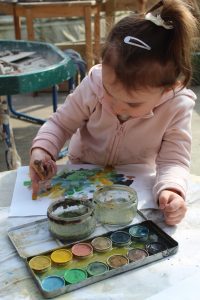
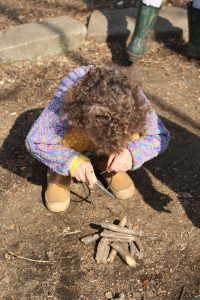
There is no doubt in my mind that the freedom of choice, the sense of open space and freedom, the ability to be autonomous in their learning experiences, to make their own choices and explore their own ideas is one hundred percent the reason that our children stand out in reception classes across our postcode as having the necessary ‘school ready skills’ (a term I abhor)!
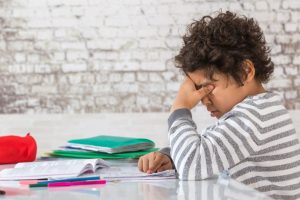
It therefore leaves me feeling deflated, saddened and to be honest a little angry on behalf our children that these foundational skills which should be built on and nurtured throughout their childhood, is ripped away by a school education system that is failing to ignite curiosity, lifelong learning skills and most of all, an enthusiasm to learn. Having had a child recently start school after attending Inspirations I can’t tell you how against the grain I have found the homework load, the testing at age five and above all, the change in my child’s engagement in her own learning. Her interest has waned, she is no longer skipping out to tell me what she has been doing… Why, because it has been inconsequential to her, it is something that has just happened, rather than something she has engaged with and in. She is no longer at the centre of her learning process. Testing teachers teaching skills has overridden the requirement (and every child’s right) to put them at the heart of their own learning and development.
Consider an alternative
It is my view that our current learning institution is failing in terms of both the children attending and the teachers teaching. Here at Inspirations, we have witnessed first-hand the uptake of teachers leaving the profession in recent years citing burnout and their personal loss of passion for a role that is no longer rewarding to them. I have always said that working alongside children is a vocation not a job, we need to foster the passion and autonomy of the people educating our children NOT beat them down and stamp them out. This is unfortunately the situation we are currently facing within schools across the UK.
The alternative then… Let’s consider a school environment that follows a similar ethos and pedagogy to Inspirations where children and adults collaborate together in environments that encourage lifelong learning experiences, where children feel free to learn though play where they can experiment, make mistakes and learn from them without feeling like they have failed or haven’t met pre prescribed arbitrary standards. ‘Standards’ which only serve to demoralise both the teachers and students.
Our school environments haven’t changed since their conception over a hundred years ago. I for one think it’s time for a new approach.
Do you agree?
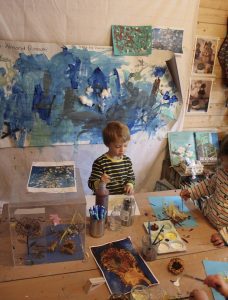
-Nicola
Project Based learning in Adel
We're heading over to our Pre-School Adel setting this week to see what's been going on. Just like our Horsforth setting; Adel follows a child centred approach with a focus on creativity and project based learning.
Our Adel children began talking about farms when we returned in September and since then we found out what they know and learn and followed that interest.
They began talking about the animals and especially pigs so we focussed in on this particular animal to learn more about them. We read non-fiction books together and looked at the internet for facts about what pigs do and look like. We read The 3 Little Pigs story in English and Spanish and made their houses inside and outside in the garden.
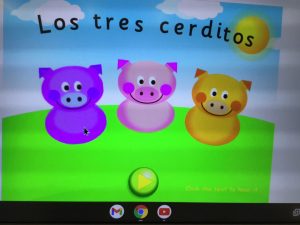
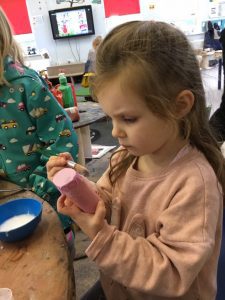
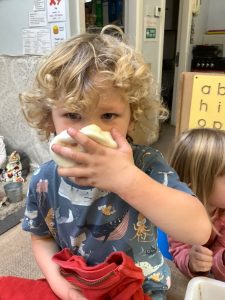
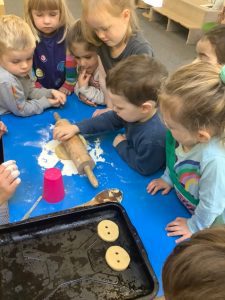
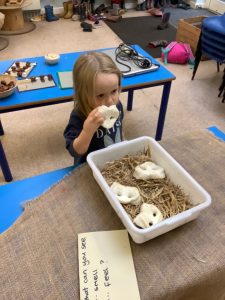
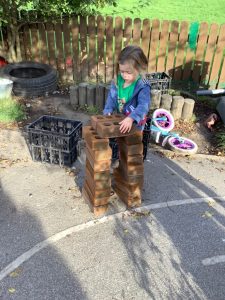
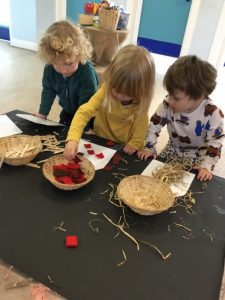
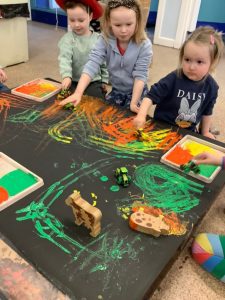
We used pigs for maths, shapes, estimating, counting and size ordering. We had sensory play with shaving foam, mud and paint to make muddy pigs, investigated real pig snouts and baked our own pig snout biscuits. We talked about our senses and animal senses and our Atelierista worked with the children on smelling different scents and choosing which to use in their ‘smelly snouts’ as well as making a group Papier-mâché pig.
Horses became the animal of interest so again we asked the children what they knew and wanted to know about them. The children always suggest we can read books and look at the internet for information so we did this and discovered lots of new facts about how many jobs they do and what they look like.
Since then we have learned about their hooves and horseshoes, and made horseshoes using clay, tools, and metallic paint with our Atelierista. We have role played using cowboy hats and learned about cowboys, made hobby horses to race on the field, used sewing skills to make sock puppets and went on a trip to Hope Pastures to see some real horses up close.
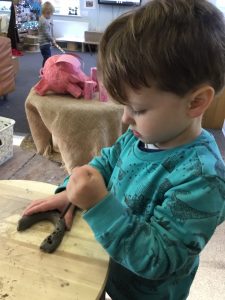
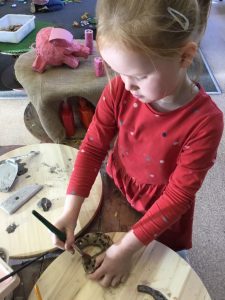
The children have been talking about tractors and combine harvesters so we are learning more about them and what they are used for. We have had tractors in paint to make tracks, washed them and used them in the mud, we have been singing the old Wurzels Combine Harvester song together and have read non-fiction and fiction books about tractors. At the moment the children have been telling us what the tractors do to help farms and which food might grow on a farm, so we will be following this path to learn more about farm produce and planning lots of activities to support this journey togetherincluding visiting a local farm.
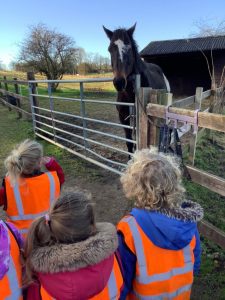
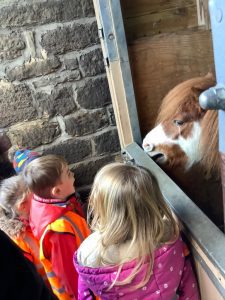
Duchess of Cambridge splits logs with forest school pupils
Forest School in The News
'The Duchess of Cambridge has spent the morning learning the tricks of the lumberjack trade — from a class of five-year-olds.
The duchess, 40, has been on a fact-finding mission in Denmark to learn how the country has become a world leader in its approach to early childhood development.
She used a mallet to chop wood and joined a mindfulness session with young children as she began her second day in Copenhagen at a forest kindergarten.'
Read the full article here:
https://www.thetimes.co.uk/article/4e1b8532-94a7-11ec-9aec-82f0032d4cd3?shareToken=bd3efd93a6f7f3d818a2a49b7990cd3f
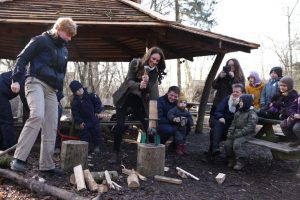
Movement and Sensory
“Watching a child makes it obvious that the development of the mind comes from movement” – Maria Montessori
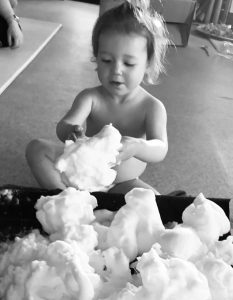 Having only being on the planet a short space of time, babies are very curious and explorative learners. They use all their senses to explore and learn about the world around them. They are primed to respond to sensory stimuli, starting from in the womb; touch being the first sense to form and then the others follow. It is important to provide a variety of sensory experiences from a very young age to support the development of the senses, and on more than one occasion. Repetition will give babies time to explore and investigate whilst making vital connections in the brain for future learning. This needs to be supported with a play-based approach as it is not a taught process. When engaged in movement play, children are working the brain and making incredible connections that will support their future movements. Movement is very important between the ages of 0-9 and supports children with links created in the brain.
Having only being on the planet a short space of time, babies are very curious and explorative learners. They use all their senses to explore and learn about the world around them. They are primed to respond to sensory stimuli, starting from in the womb; touch being the first sense to form and then the others follow. It is important to provide a variety of sensory experiences from a very young age to support the development of the senses, and on more than one occasion. Repetition will give babies time to explore and investigate whilst making vital connections in the brain for future learning. This needs to be supported with a play-based approach as it is not a taught process. When engaged in movement play, children are working the brain and making incredible connections that will support their future movements. Movement is very important between the ages of 0-9 and supports children with links created in the brain.
How do we support this at Inspirations?
Providing children have access to space, resources and good role models, children will spontaneously make the movements and develop their brains, making the connections needed. At Inspirations, we always ensure we provide opportunities that support children in the five headings and what it supports:
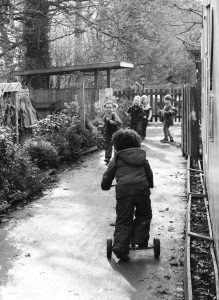
- Floor play- tummy and back. Floor play/ tummy time is really vital for the brain to make connections for early reading in future learning. If the baby is premature or has reflux, this will be really uncomfortable for them so it’s not recommended. Different textures such as bubble wrap, corrugated cardboard or a slightly deflated gym ball are good opportunities for this. Being on the tummy helps with connections to develop bladder control and the sense of need- heat, cold, drink etc.
- Belly crawling/creeping. Supports bladder and bowel control, stimulates foot arch (walk on tip toes), hip rotation, physical alignment, lower palm rotation- mark making. Making swirly patterns in gloop supports the opening of palms.
- Crawling supports the cross lateral part of the brain. This will help with making the connections in the brain to enable us to use a knife and fork for example. This allows more complex balancing/ coordination, the ability to remember, sort and filter tactile, aural and visual information. Children who haven’t crawled tend to find it more difficult to remember sequence, remember the last instruction given.
- Upright. Sensory intelligence, balance and coordination, supports reaching and grabbing. The balance receptors in your feet are stimulated
- Spinning, rocking, rolling and swinging. Eye tracking/ convergence- reading, complex balance ability, great coordination, vestibular awareness, help to centralise their body movements.
The 'Bare' Necessities
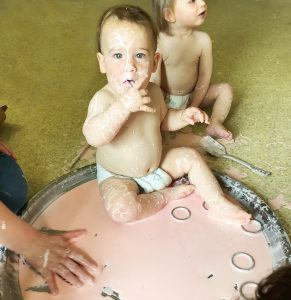
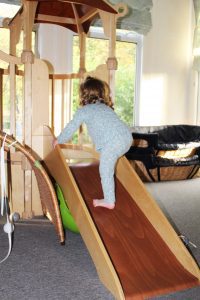
Toe flicking and spending as much time as possible with bare feet is one of the lesser know important aspects. Children who have not had much time doing this are often the children who kick out when laid down or kick whilst sat at the table as they are craving the feeling on their feet. The educators with the babies will often create a sensory walk for them to experience lots of different textures on their bare feet. We also allow the babies to strip down to their nappies when involved in sensory/messy play. This enables them to get a full sensory experience all over their bodies. A sensory activity is planned most days alongside the children’s interests for our babies and toddlers.
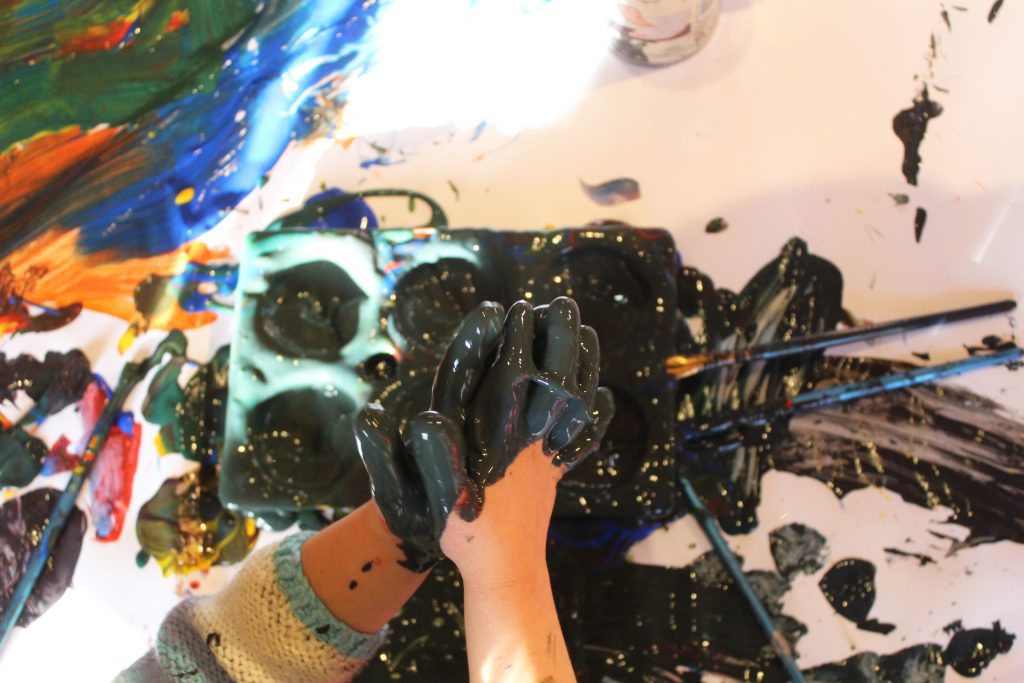
Being outside is a totally different sensory experience. Outdoor learning is a big aspect of our ethos that we provide all day, every day. The weather provides different experiences as well as the surroundings, growth, plants and herbs. Our toddlers enjoy adding paint, essential oils or bubbles to puddles and then lots of splashing and watching the changes emerge. They will hang foil blankets in the trees when it is windy to listen to the noises it creates. Our babies are out at least twice a day, no matter what the weather. We therefore provide full suits to enable all our children to have the full experience of all weathers, without any limitations. Our toddlers have the door open and can choose to go in or out all day. Preschool are based in an outdoor classroom with a yurt so experience all weathers all day.
Supporting our children’s developmental needs ultimately helps prepare them for future challenges, and an independent happy future.
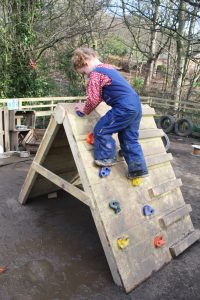
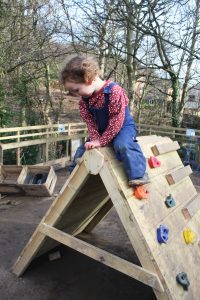
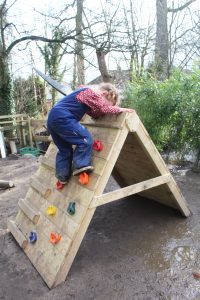
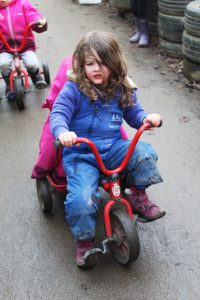
Making up Stories
Last week it was National Story telling week, so our children had a go creating their own stories. Here are the stories from 2 of our pre-school children.
Taking Care of Mental Health
In today’s blog we are thinking and looking at the importance of taking care of our mental health and wellbeing. To say the last year has been difficult would be an understatement! It has been extremely challenging and may have taken a toll on our mental health and wellbeing.
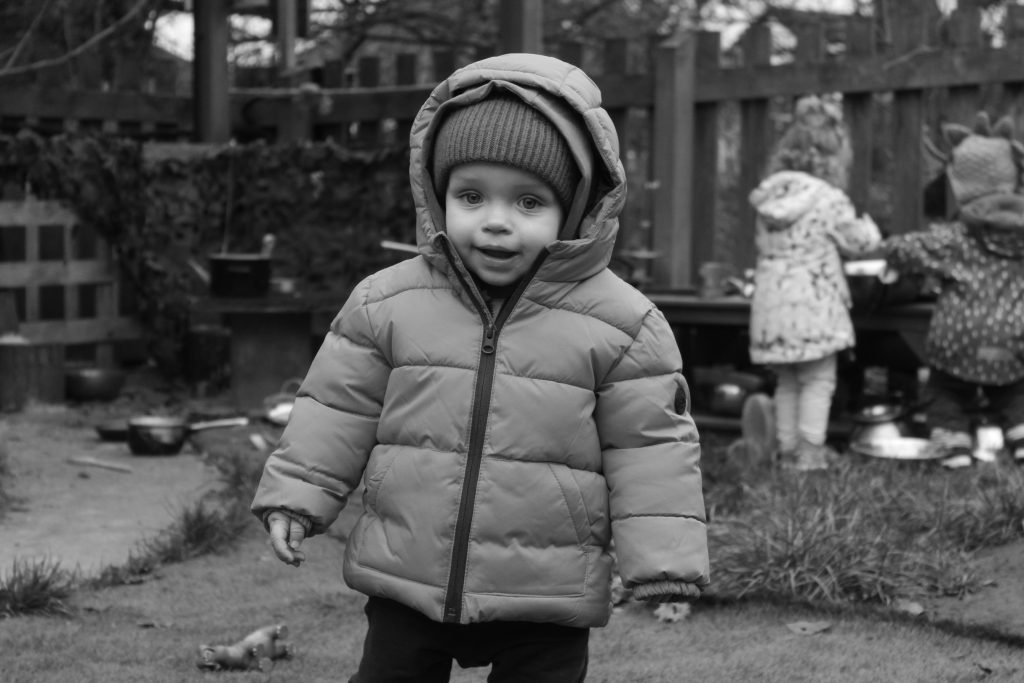 At Inspirations we believe that the staff are the lifeblood of our nursery, and therefore supporting their mental health and wellbeing is a key priority. This was top of the agenda for our first staff meeting of the year.
At Inspirations we believe that the staff are the lifeblood of our nursery, and therefore supporting their mental health and wellbeing is a key priority. This was top of the agenda for our first staff meeting of the year.
As a setting we have introduced a new wellbeing policy and different initiatives (ie wellbeing basket, flowers and activities in the staff room, celebrating working anniversaries), to help staff to focus on their own wellbeing, while supporting them both professionally and personally. Staff also have full access to our EAP program (employee assistant program). The program offers a free 24hr confidential helpline to help with anything from stress and anxiety to gambling issues. If needed staff can be referred for 6 free counselling sessions. The program also offers many wellbeing services with its ‘My Healthy Advantage’ app where you can do things from mini health checks to tracking your sleep or mood. Family members can also access the program.
Promoting wellbeing among staff is not only humane and a good thing in itself but, also has a number of benefits for our setting, such as.
- Positive impact on children, including stronger relationships.
- Reduced absences
- Staff being able to manage their own stress better and to develop healthier coping strategies.
- Staff feeling valued, supported and invested in.
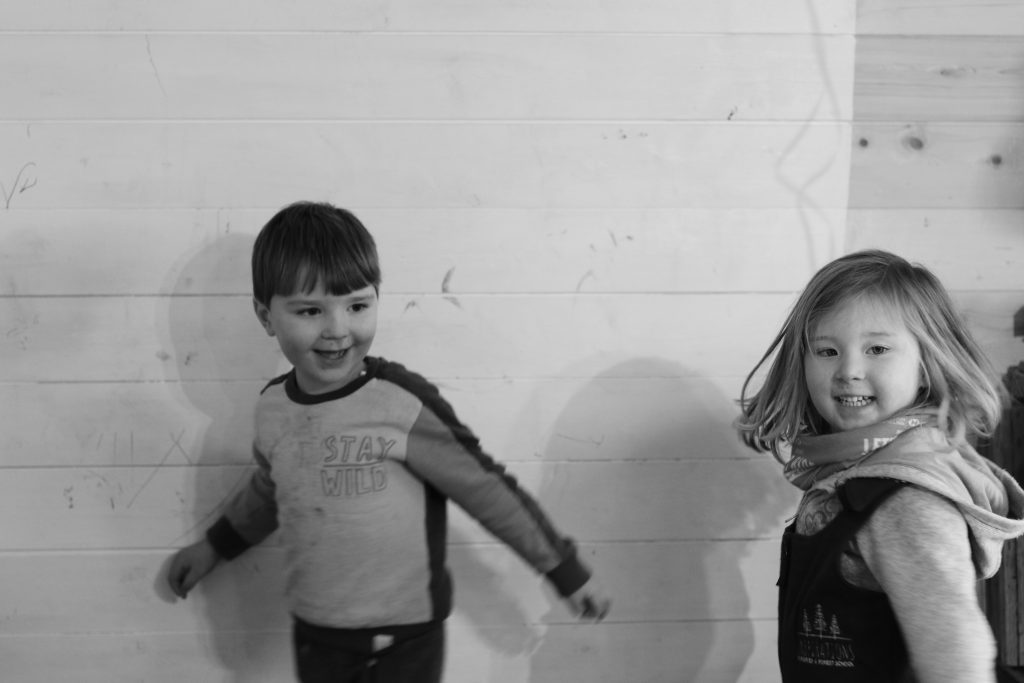
Supporting Mental Health in Early Years
The foundations for a child’s healthy emotional development are known to be laid down in their early years. At Inspirations we recognise the importance of positive early experiences for mental wellbeing. Feelings or attachment, security and positive stimulations within loving relationships (key person) help to strengthen a child’s development emotionally. This makes them more likely to thrive and become healthy adults.
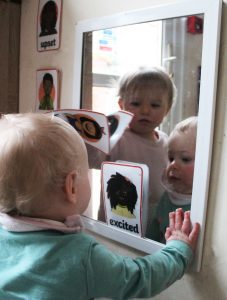
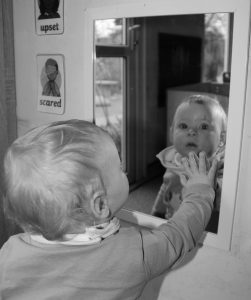
We know at Inspirations that all adults who spend time with young children have a responsibility to help in their healthy mental development and wellbeing. This is just another reason why we make it a priority all staff are qualified to level 3 or above (or working toward).
Some of the ways we support our children’s wellbeing daily are, through stories, outdoor play, singing, music, drawing and crafts, use of emotional language, role play and general play.
In relation to children’s wellbeing, long term Forest School programs are found to have positive impacts on children’s physical and mental health, in addition to improving their social and cognitive competence. Being outside in a natural environment has been shown to relieve stress by reducing the levels of stress hormone, cortisol, in the brain. Children taking part in forest school sessions quickly show evidence of a greater emotional maturity.
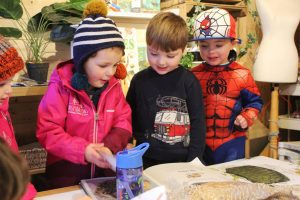
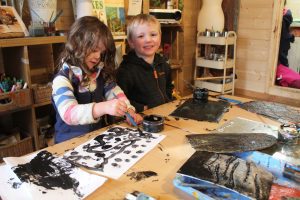
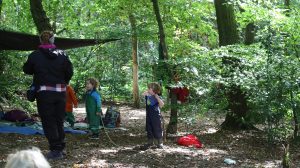
Promoting wellbeing in children enhances their confidence and resilience. The promotion of social skills through group games and activities will enable our children to be confident communicators and develop positive friendships and relationships. Our forest school sessions also promote self-esteem and emotional intelligence by giving children ownership and control. Being outdoors in our beautiful natural environment is as beneficial to the staff as it is to our children.
Our setting is homely and cosey with lots of opportunity for conversations. Children are encouraged to choose what they do, with guided play (forest school, art studio). Children also have opportunity to take safe risks, building their confidence and resilience.
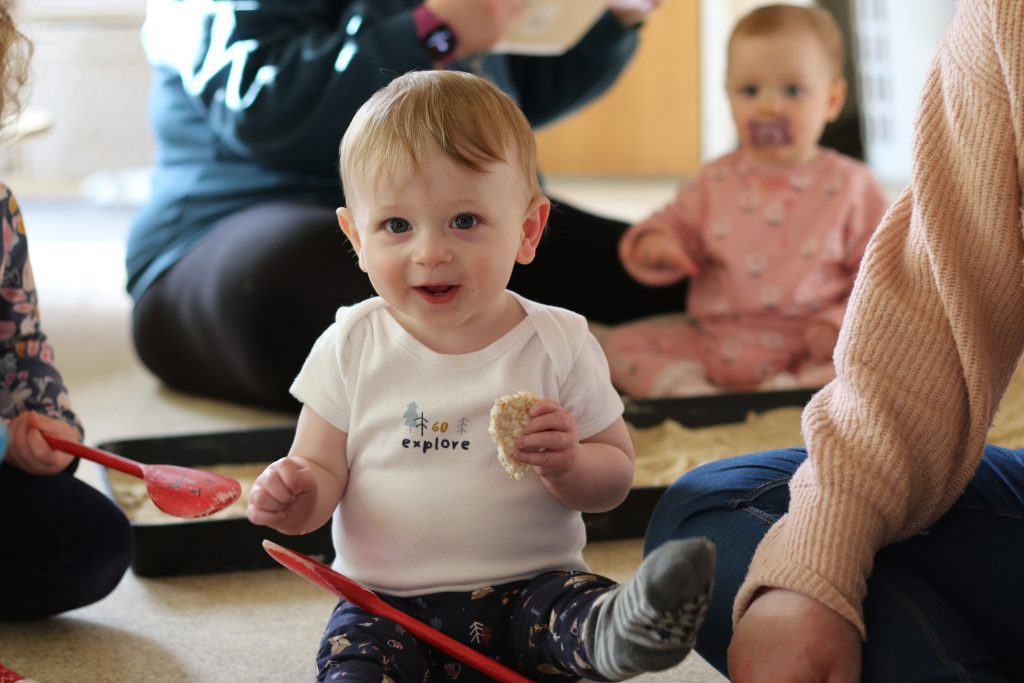
As a team we are constantly reflecting on our environment and daily routine, and how it best supports children’s emotions. We also recognise that family is the most important influence in a child’s life. Building strong bonds with our parents/carers is extremely important to us at Inspirations. All our children/families have their own key person. The presence of a key person helps both the child and parent/carer to feel more emotionally secure, and of course our management team are also there to offer support to our families daily.
-Tara
What's New for 2022
Welcome back from us all at Inspirations Nurseries, we hope you all had a wonderful Christmas break and New Year. We are excited for the year ahead and welcome back our current families and all our new families who are joining us this coming year.
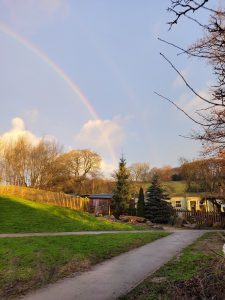
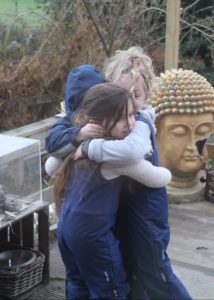 We are excited to reveal that this year we will see all onsite construction complete! After over 3 years of developments and improvements, and some Covid related delays, our onsite developments will be finished.
We are excited to reveal that this year we will see all onsite construction complete! After over 3 years of developments and improvements, and some Covid related delays, our onsite developments will be finished.
So what can we expect to see this year?
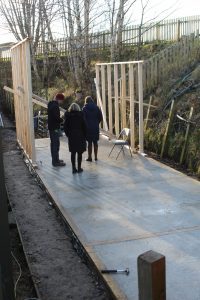 The new staff room
The new staff room
Our growing staff require more space so our new staff room is well under way next to the Art Studio. This frees up the old staff room space which we will transform into a dinning area for our pre-schoolers. This will be a place for them to enjoy Carol’s hot meals cooked on site and refuel after their morning at forest school, art studio, yurt or outdoor classroom.
The Green house and Vegetable Patch
Coming 2022, a new exciting onsite development. Our new green house and vegetable patch will be an additional space for all age groups to explore and enjoy. A space for them to grow their own plants, fruit and vegetables. Another opportunity for our children to learn from nature and even taste their produce.
The Walk of Art
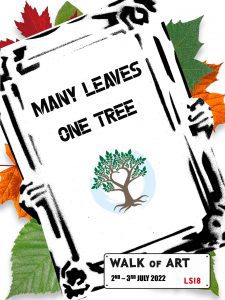 This year will be taking part in the Walk of Art again on 2nd July. The theme this year is Many Leaves, One Tree, and focuses on us being individuals who are still connected.
This year will be taking part in the Walk of Art again on 2nd July. The theme this year is Many Leaves, One Tree, and focuses on us being individuals who are still connected.
Some other dates for the diary include:
Summer Party- Saturday 23rd July
Parents evening- Monday 20th June
A New Years Resolution
It might be 2022, but our ethos and mission remains the same. As a nursery our new years resolution is to continue to learn from nature and make the right choices for our children and our planet.
Teaching children about the natural world should be seen as one of the most important events in their lives - Thomas Berry
